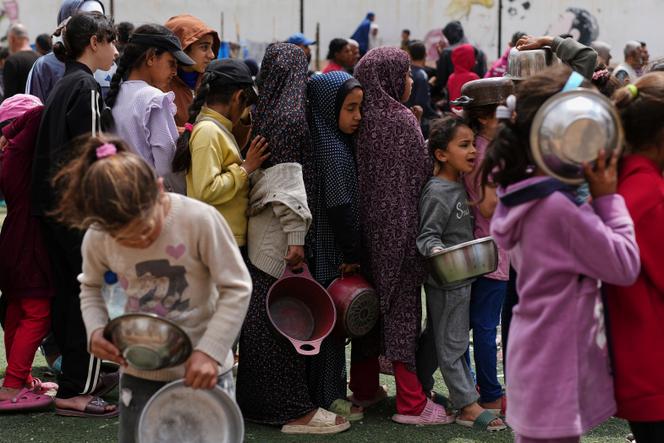


Ahmad Al-Karimi has lost his last two remaining brothers. Mahmoud and Yehya, along with Al-Karimi's pregnant wife and young daughter, were all killed in an airstrike on April 7 in the Al-Mawassi refugee camp, west of Khan Yunis. Like hundreds of thousands of Gaza residents, the family was in line for a hot meal served by a "tekiya" – one of the makeshift community kitchens that have become the last bulwark against famine in Gaza, where Israel has blocked aid entry since March 2.
"I don't know why they targeted this tekiya. Do they need reasons to bomb us? We rely on these kitchens because we have no money, no work, no supplies, nothing!" said Al-Karimi over the phone – Israeli authorities continue to ban foreign press from accessing the Gaza Strip. This taxi driver from Rafah, in the south of the enclave, has been displaced since the start of the war to a tent camp in Khan Yunis. He now cares for 12 orphaned nieces and nephews, the children of his brothers and brothers-in-law killed in other attacks.
The strike, which according to the Associated Press killed seven people, was far from isolated. According to the United Nations Office for the Coordination of Humanitarian Affairs (OCHA), other attacks near these kitchens have been reported: on March 18 in Rafah, March 25 in northern Gaza and on March 26 and 27 in the Nusseirat camp. The UN agency noted that the majority of these strikes targeted so-called "humanitarian" areas, where Israeli authorities have asked the population to take shelter since the resumption of military operations. Since March 18, when Israel broke the truce that had been in place since January 19, 400,000 Gaza residents have been displaced again.
You have 76.45% of this article left to read. The rest is for subscribers only.
